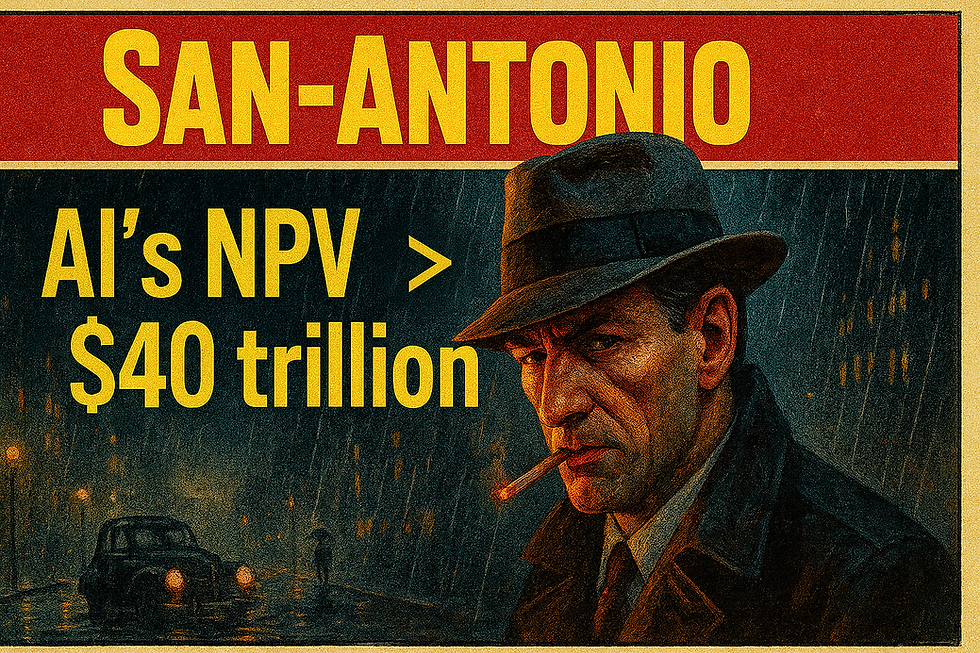The World As It Is (Not As One Wants It To Be)
- Laurent Bouvier

- Nov 2, 2025
- 3 min read
Last week, over dinner in NYC with a Californian friend, I found myself arguing fervently that social ‘progress’ throughout history was less the result of human enlightenment or moral awakening than the product of economic drivers. Later that evening, I pored over academic research and realized that this thesis was advanced two centuries ago by none other than Karl Marx. I should have known better.
In ‘The German Ideology’ (1846), Karl Marx and Friedrich Engels postulated that ‘the history of humanity must always be studied and treated in relation to the history of industry and exchange.’* Later, in 1859, Karl Marx wrote that ‘the economic structure of society [is] the real foundation on which arises a legal and political superstructure [..]. The mode of production of material life conditions the general process of social, political, and intellectual life.’
Karl Marx is thus credited for popularizing the concept of ‘historical materialism’, which argues that a society’s economic structure shapes its ‘superstructure’: truths, morals, culture, politics, and laws. Since then, his idea has been extrapolated and twisted. It led, amongst other things, to a more extreme, reductionistic version called ‘economic determinism’ which holds that economics explains everything. Max Weber and Karl Popper were among the staunchest critics of historical materialism and its offshoots, arguing that Marx’s thesis was overly simplistic and unscientific.
Be that as it may, the argument that changes in production, labor, relative prices, and capital allocation reshape economic relations, after which politics, legal reforms, and moral standards – the superstructure – consolidate a new reality, resonates with my worldview. It follows that ideas and ideologies matter, but they only scale when supported by economics. This perspective does not portray human nature in a flattering way, but it is best to look at the world as it is, not as one wants it to be.
History offers ample evidence of historical materialism. For example, economic transformations or motives underpinned the abolition of slavery, women’s voting rights, immigration, and globalization.
By the same logic, the failure of sustainability to embed itself in economics has led to a backlash. Citizens believe in ideals until those ideals are seen to threaten their prosperity. Because addressing it now appears economically unviable for the broad public, climate change is suddenly seen as a lesser issue. By contrast, the concept of ‘efficiency’ (energy, land, water, raw materials, manhours) has better prospects precisely because it is directly tied to an economic rationale.
Globalization and its companion values, encapsulated in ‘cosmopolitanism,’ enjoyed a much stronger run, spurred by an economic growth agenda conveniently associated with a ’We Are the World’ cover story. But it, too, failed to generate a fair, sustainable economic outcome; instead, it exacerbated inequality (see ‘Obituary’, 2023). The search for alternative economic structures now drives a full political realignment and the rise of a different set of values.
From a historical materialism perspective, today’s ‘culture war’ is an economic debate in disguise, as some political strategists are finally realizing (see ‘Deciding to Win’). Accordingly, there is no moral high ground, nor high horse - just humans in economic survival mode.
How an AI-driven shift in economic relations will transform society’s superstructure is the next big question. Politically, morally, and culturally, nothing can be taken for granted.
* More poetically, they also declared that ‘the phantoms formed in the human brain are also, necessarily, sublimates of their material life process’, where ‘phantoms’ include what is believed to be morally, culturally, and politically appropriate, and ‘material life process’ means economic circumstances.




Comments